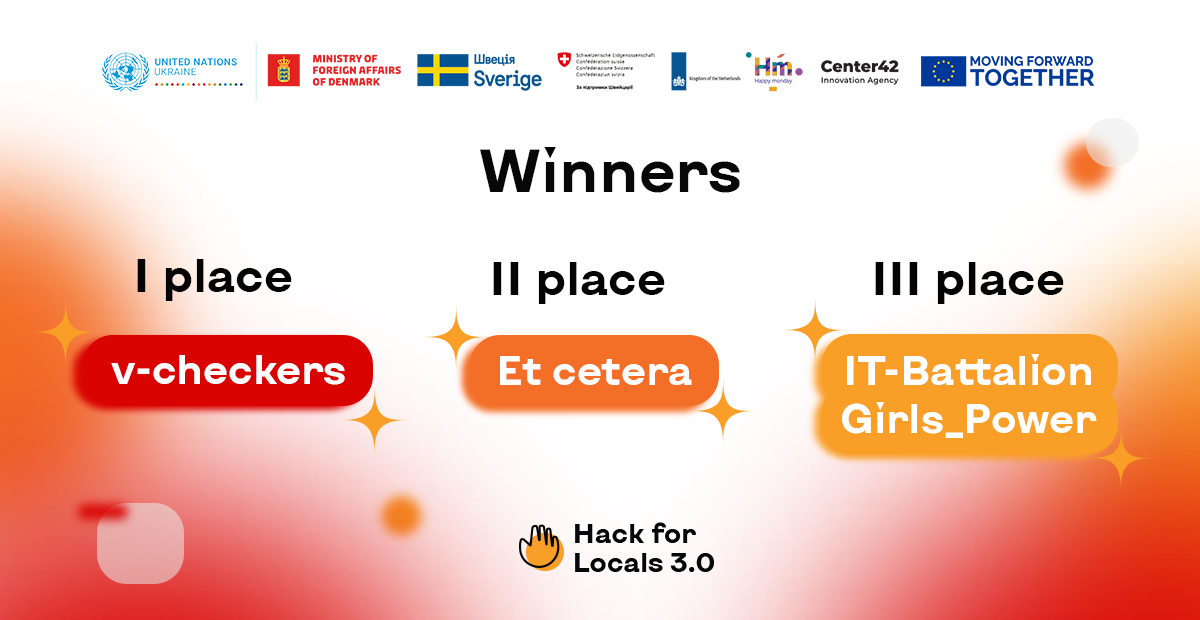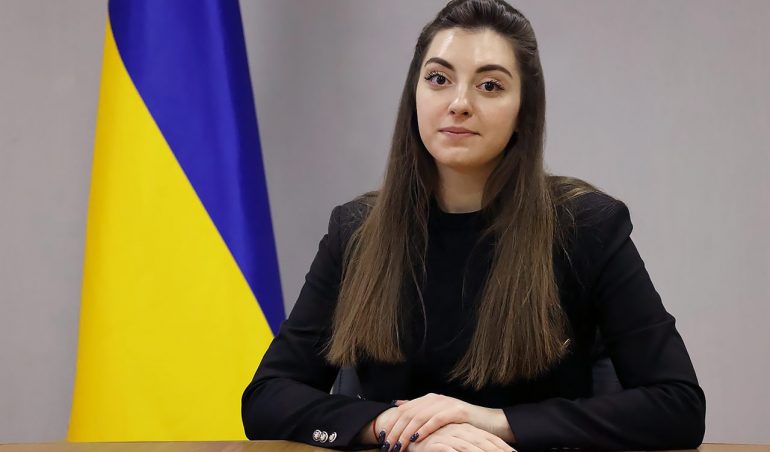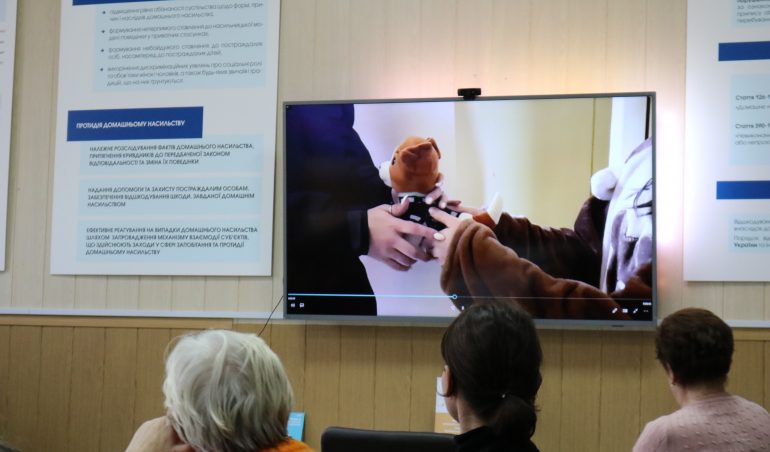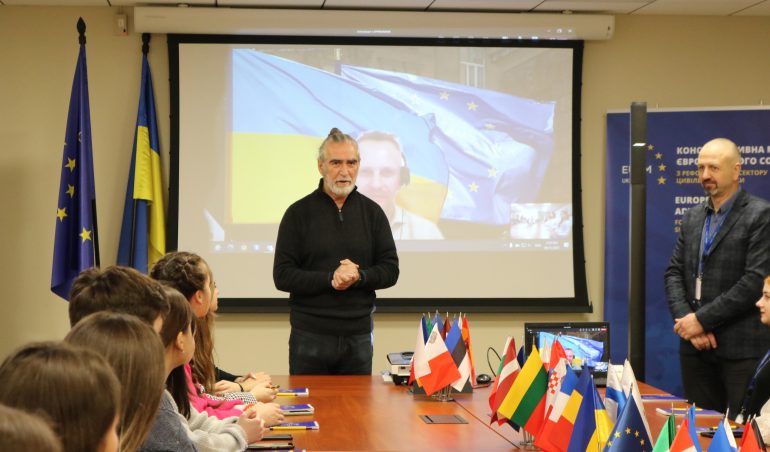Two young women activists create an innovative solution to bring awareness to domestic violence
December 09, 2021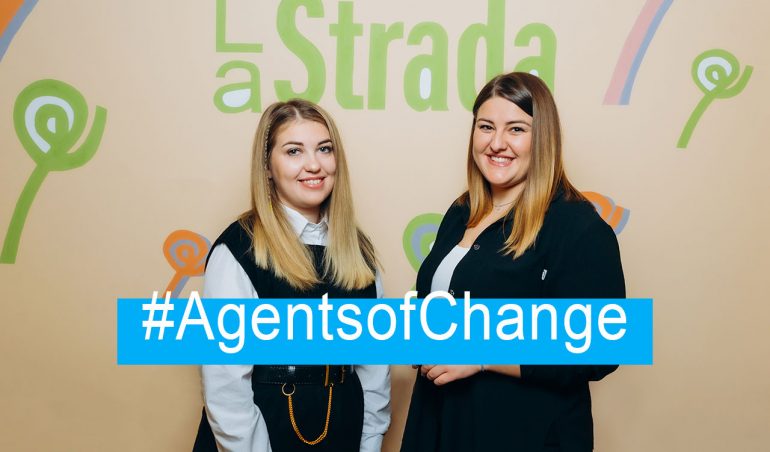
Two women working for the La Strada-Ukraine NGO, Valeriia Bondar (psychologist) and Tetiana Kharkivska (social manager) took the opportunity of the “Hack for locals 3.0” initiative to register their digital project under the codename “Girls Power”. Their idea? Developing a gamified online quest called ‘Live without illusion’ made to sensitise the players to domestic violence and get out of toxic relationships. Held under the UN Recovery and Peacebuilding Programme, the UN Development Programme (UNDP), UN Women and the UN Population Fund (UNFPA) had precisely dedicated this third edition to the #16DaysofActivism against Gender-Based Violence campaign.
![]() Organised together with national partners like the Happy Monday career acceleration company and the Center42 Innovation Agency, and international ones like the EU Advisory Mission (EUAM), this online hackathon aims to support and mentor ‘doers’ in finding solutions to prevent and combat violence. Among 400 other #AgentsofChange participants this year, Mses Bondar and Kharkivska had followed for three days a series of presentations, pitches and mentoring sessions until they reached the final stage of the contest… and won third place! Today, they decided to review the beginnings of their project for us, explaining their original idea and how they plan to launch it with the prize grant.
Organised together with national partners like the Happy Monday career acceleration company and the Center42 Innovation Agency, and international ones like the EU Advisory Mission (EUAM), this online hackathon aims to support and mentor ‘doers’ in finding solutions to prevent and combat violence. Among 400 other #AgentsofChange participants this year, Mses Bondar and Kharkivska had followed for three days a series of presentations, pitches and mentoring sessions until they reached the final stage of the contest… and won third place! Today, they decided to review the beginnings of their project for us, explaining their original idea and how they plan to launch it with the prize grant.
Can you describe your experience during this 3-day initiative? Did you have to adapt your original idea to fit the jury’s requests?
Tetiana Kharkivska: At first, we thought about developing something incredible for the youth and helping to bring awareness on how to build safe relationships. We realised that violence already kicks in at the early stages of relationships when the partners only begin to date. Of course, there were many changes in the process of project development, as we changed its name, concept – as we did not know whether it would be a game or a quest. The final name is now ‘Live without illusions’.
How do you link this online quest project to your work in La Strada?
Valeriia Bondar: La Strata covers a much more comprehensive range of issues than just domestic violence prevention. We operate a hotline for children and youth, to which, during six months, we have received 77,396 calls from children and youth. One of the issues raised was abusive relationships. That is why the topic of our project is not made up, and it is real and acute, which is proved by our hotline statistics. Thus, we believe that creating such gamified quest will add to La Strada’s activities on the issue.
We also carry out several preventive measures related to violence, safe relationships among young people. This quest will help our work with young people, including other schoolchildren and students.
In Ukraine, what are the main obstacles to eradicating gender-based violence? How will this project contribute to changing it?
T.K.: I think we are now at the stage that Ukraine needs to ratify the Istanbul Convention that would widen the scope for aid for the victims because the existing legislation is not perfect, causing many cases to be lost within the public institutions. With the Istanbul Convention ratified, the State will have to organise specialised shelters in every region, establish cooperation between all agencies involved in responding to domestic violence and, of course, strengthen the liability for the perpetrators of domestic violence.
I believe that our work is an essential element of domestic violence prevention. When we talk to children and youth, we realise that they may face violence, but they do not trust the adults. Lectures on the topic carried out at schools and universities are often dull. So we believe we should use a more unconventional approach. That is where our quest will come in handy.
V.B.: The online quest will target identification and response so that participants can identify that a person could potentially be a violence victim or perpetrator. Also, during the experience, a person will be able to contact the hotline to seek advice – there will be a special button in the quest for that.
What are the next steps now to implement your project?
V.B.: Today, we have met with the hackathon organisers and are now finalising project documentation. During the presentation, we indicated that we needed a budget consistent with the announced grant value to implement our idea.
As to the project implementation, once all the required paperwork is completed, we plan to start implementing the project as soon as February. We have identified several educational institutions in Donetsk, Luhansk, Zaporizhia and Kherson regions to participate in our pilot project. Before we even begin working on the quest itself, we plan to meet those institutions’ management and conduct focus-group discussions with the target audience to learn what they would like to see in the quest.
Once the quest is uploaded, we will collect feedback from the pilot project schools to see whether the information provided is clear and well explained, whether they find the quest interesting, etc. The quest may need some improvements in the future, of course. Our goal is to make it available online to everyone: through social media, partner websites and/or other resources. These could be cinemas, restaurants and cafes where there are many young people.
Overall, what is your mean feedback on this hackathon activity?
T.K.: It was the first time I participated in a hackathon. Last year, we tried to apply to an international hackathon but failed due to translation issues. That experience has been precious, though. I have received so much inspiration despite working non-stop for two full days over the weekend!
It was a gratifying experience, and I look forward to implementing our ideas as soon as possible. I long to see the results of our work and how we can build on it. It was very emotional, as well. We felt all kinds of emotions during the hackathon – fear, doubt, joy, and excitement as if you were in a constant emotional collapse.
V.B.: Hackathon is a great tool that unites those with ideas. I liked the idea that there was no limitation on who could participate, and it was not limited to only specialised organisations that deal with violence issues. It made it possible for everyone to unite around one point – preventing violence.
We also drew inspiration from other participants. It was great to have these talks and coffee online. Presentations that we saw demonstrate that a common goal unites us. It is ideal for achieving it differently, as some do it through a quest, others through the game or preventive measures. Nonetheless, our shared goal is to eliminate violence among youth and society in general. Hackathon is a great format that not only does it unite but also produces excellent results.
What would be your message for people who want to support your work fighting for home security?
V.B.: “Changes start with ourselves”. I would say you should start with yourself. It is our organisation’s philosophy, especially when dealing with violence. In every instance of violence, one should begin when one reacts, speaks up, calls for advice or help. All is up to us. So my message to those who read this would be not to fear changes, try something new, and implement your ideas. If you hear about hackathons or similar events in the future – don’t be afraid and present your ideas. It is so rewarding to see them come to life, not just for you, but for the whole society.
T.K.: I would add not to be afraid to fulfil your ideas, learn new things, acquire new skills, new acquaintances. My message would be to unite around this shared mission – to eliminate violence in society. We need a strong team of like-minded people to achieve tangible results.
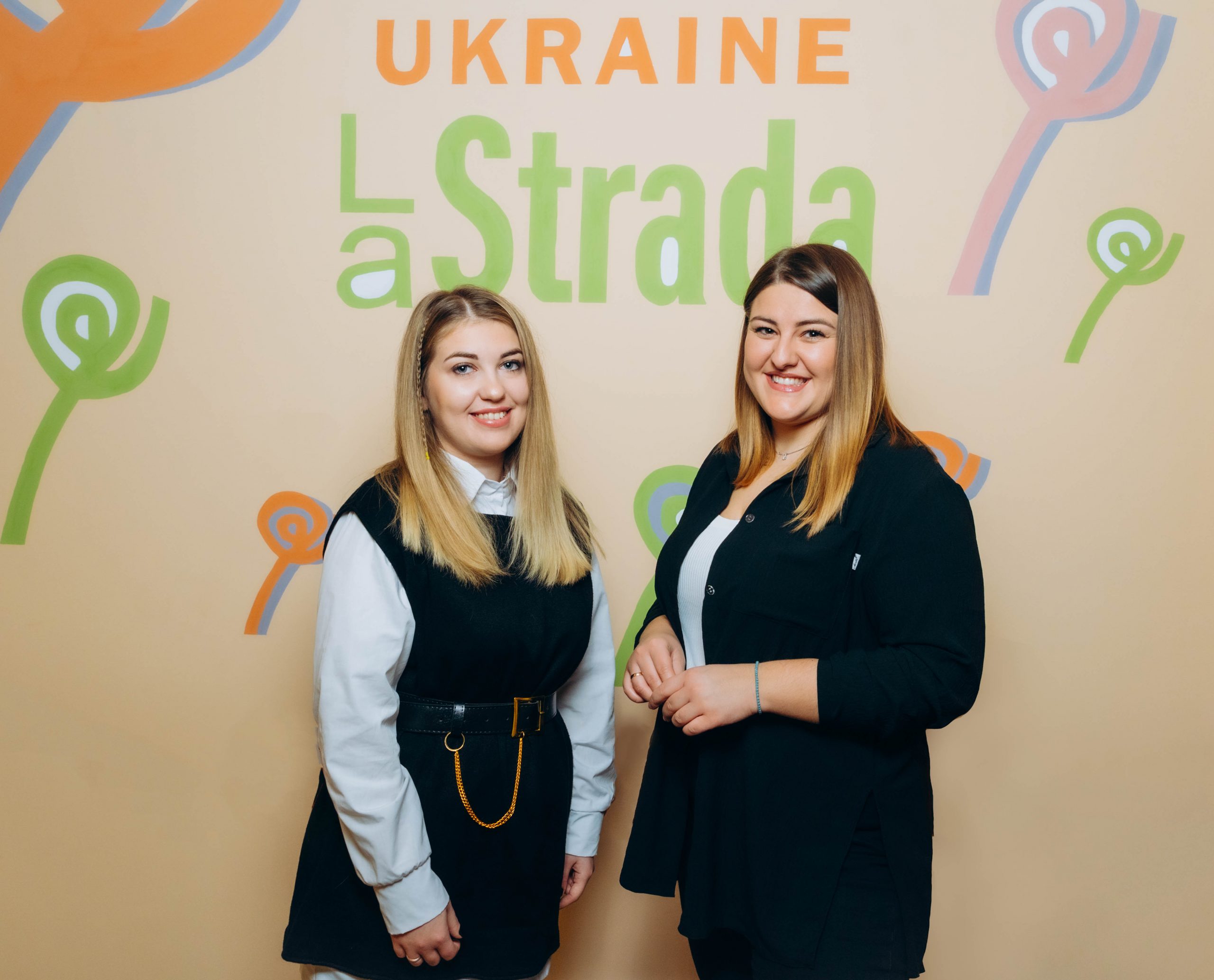
*The views expressed here are the interviewee’s alone and do not necessarily reflect the views of the EU Advisory Mission (EUAM).


